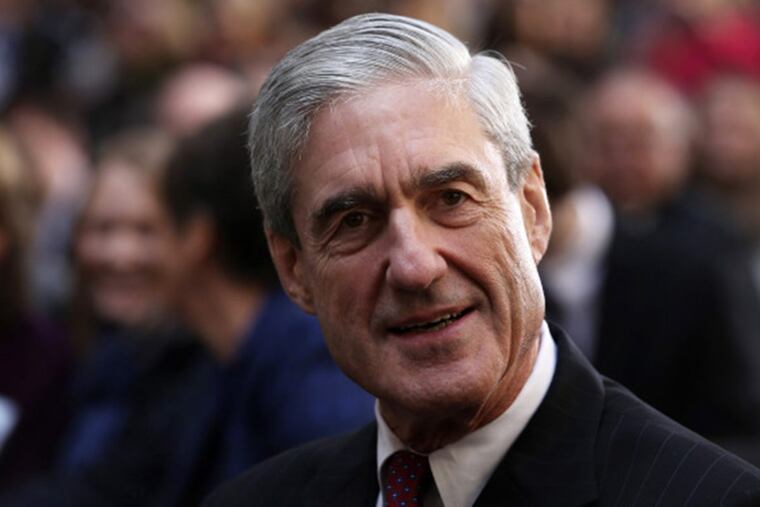Analysis: Mueller just penetrated the White House gates with Flynn's guilty plea
The White House has distanced itself from others facing charges in the Russia investigation. It can't do that with Michael Flynn.

Paul Manafort? He "played a very limited role for a very limited amount of time" on the Trump campaign. The charges against him? They have "nothing to do with the president."
George Papadopoulos? Just a low-level "volunteer" for the campaign who wasn't even worth remembering for both President Trump and Attorney General Jeff Sessions.
These were credulity-straining defenses offered by the White House in the face of charges against Manafort and Papadopoulos. But they're not going to work now that former White House national security adviser Michael Flynn has pleaded guilty to lying to the FBI.
In Flynn, we have someone who not only actually served in the White House, but someone for whom Trump clearly maintained a huge affinity even after being forced to fire him. Trump has reportedly rued the day that Flynn forced himself out by misrepresenting his contacts with then-Russian Ambassador Sergey Kislyak — contacts which are at the heart of his guilty plea — and even sought leniency for Flynn from then-FBI Director James Comey. While Trump has signaled he might go to war with Manafort, he has handled Flynn with kid gloves from Day One. The polar opposite approaches have been striking.
And now Flynn really comes into play. Special counsel Robert S. Mueller III's investigation announced the charges against Flynn on Friday, and Flynn has pleaded guilty, as The Post's Josh Dawsey, Carol D. Leonnig and Devlin Barrett report:
The substance behind the charges isn't hugely surprising. The Post had reported back in February that Flynn had denied talking about sanctions with Kislyak during an interview with the FBI. The White House had also denied this publicly, but it was soon revealed that Flynn had indeed discussed sanctions with Kislyak.
At the time, though, it wasn't clear that charges would be filed against Flynn, because of how the word "sanctions" could be parsed. Flynn argued at the time that he mentioned the expulsion of 35 Russian diplomats but didn't think of them as technically being "sanctions" — despite them being part of the sanctions package President Barack Obama announced in December 2016.
"It wasn't about sanctions. It was about the 35 guys who were thrown out," Flynn told the Daily Caller at the time. "So that's what it turned out to be. It was basically: 'Look, I know this happened. We'll review everything.' I never said anything such as, 'We're going to review sanctions,' or anything like that."
Mueller's decision to actually charge Flynn, then, is clearly a significant escalation of an investigation that has already led to charges against Manafort and his deputy, Rick Gates, and a similar guilty plea for making false statements by Papadopoulos. The conventional wisdom around the charges against Manafort is that Mueller was trying to use them to get more information about possible collusion with Russia. The charges themselves had nothing to do with the campaign, but instead had to do with Manafort's business dealings.
With Flynn, the charges actually stem from his role on the White House transition team, and they involve a man who was clearly close to Trump — a man to whom the notoriously fickle Trump has for some reason remained loyal even long after Flynn's usefulness to him expired. While Manafort was a significant cog in the Trump machine's effort to obtain the White House, Flynn was a confidante and someone Trump seemed to trust implicitly.
Assuming Mueller is also using these charges to leverage Flynn — and there are always negotiations around guilty pleas like this (in this case, it is believed Flynn has negotiated to avoid having his son, Michael Flynn Jr., charged) — he's just gotten much, much closer to the president himself.
The question is what else Flynn has offered apart from his guilty plea.